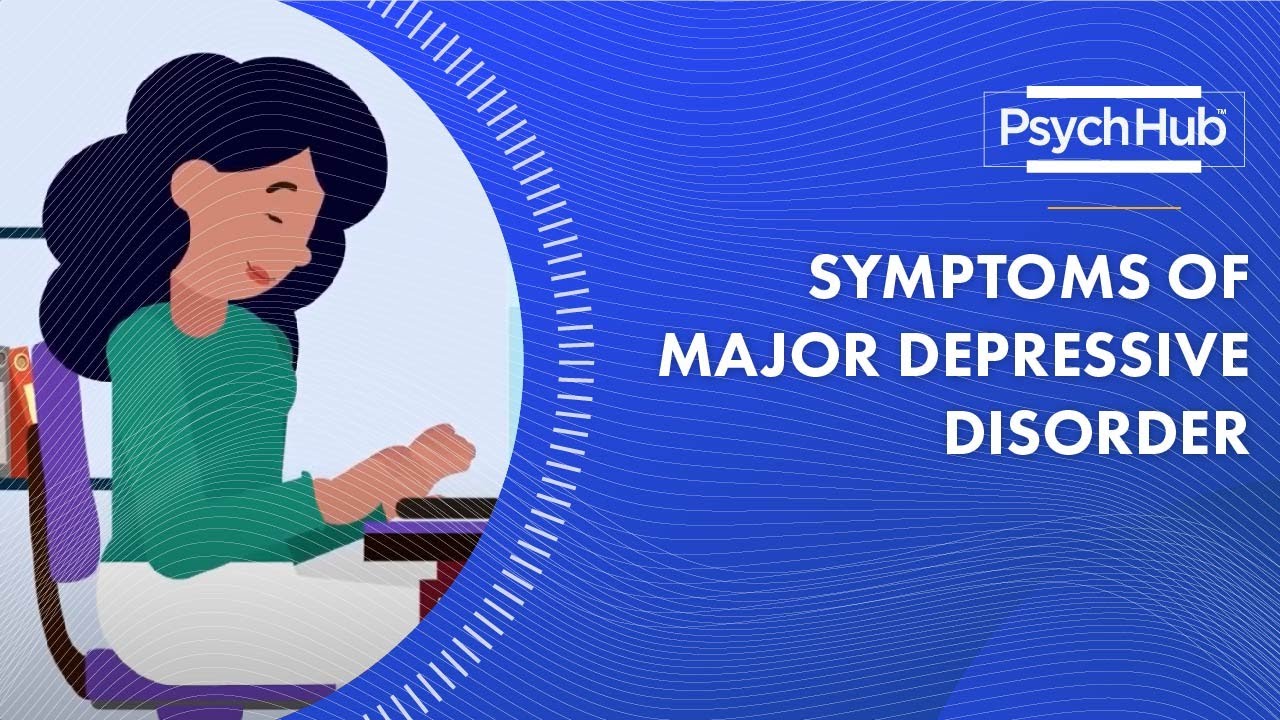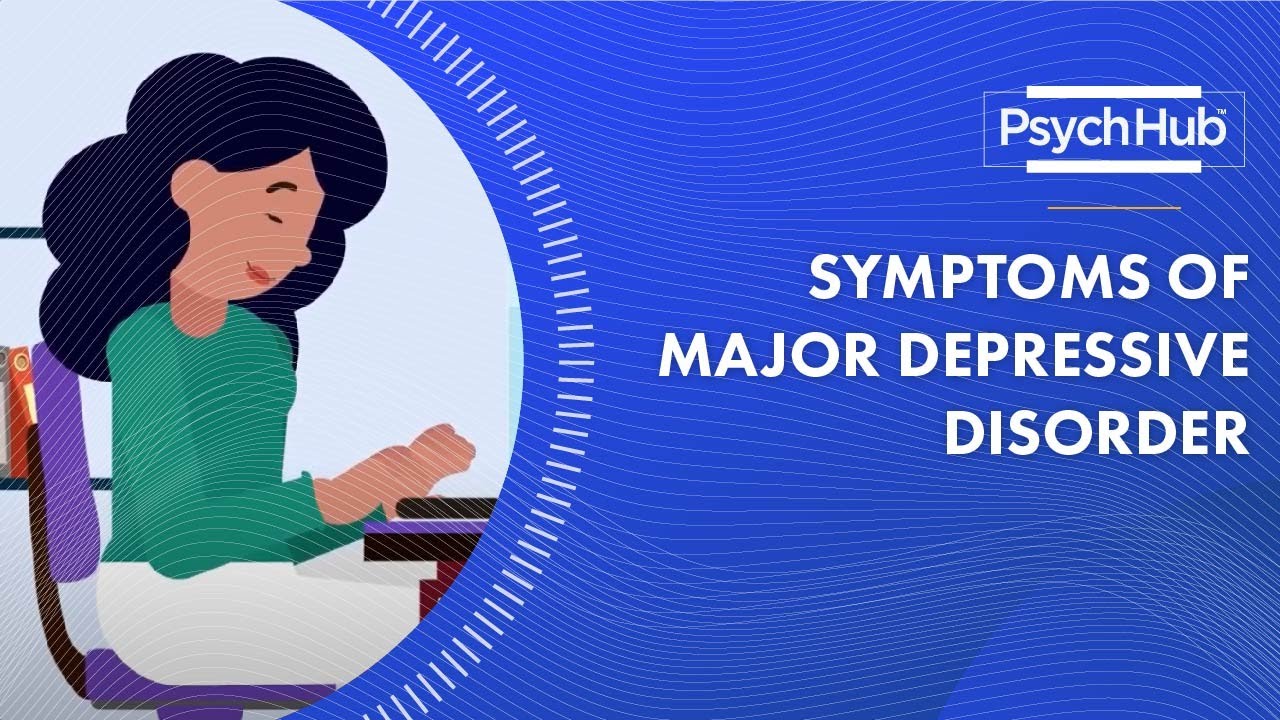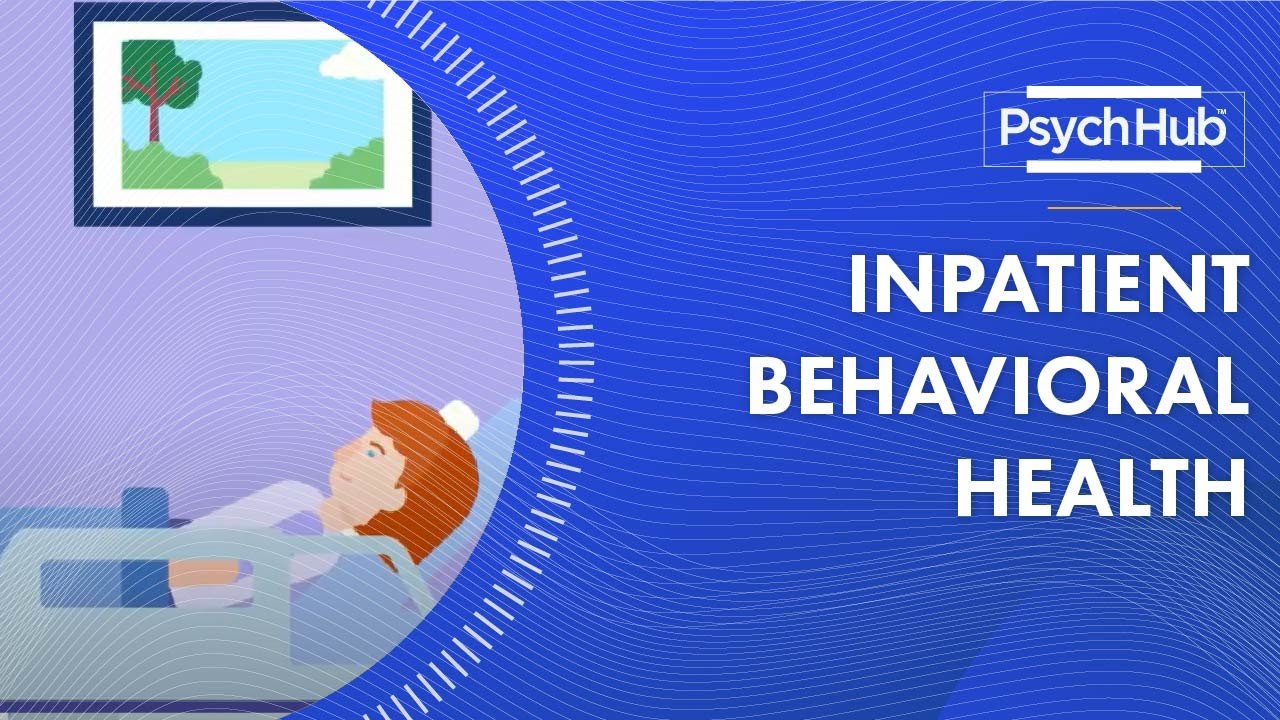Symptoms of Major Depressive Disorder, a mood disorder characterized by persistent feelings of sadness and loss of interest, can have a significant impact on daily functioning. In this video by Psych Hub, they emphasize the importance of mental health education and provide valuable resources for those experiencing or supporting someone with mental health symptoms. The video highlights the need for professional advice and diagnosis, as well as the various treatment options available. It also offers practical tips for managing symptoms, such as regular doctor visits, medication adherence, and the possibility of talk therapy. By sharing personal experiences and helpful insights, Psych Hub aims to guide individuals on their journey to better mental well-being.
Major Depressive Disorder is a condition that can leave individuals feeling hopeless, irritable, and disconnected from activities they once enjoyed. The impact on daily life can be overwhelming, but there are effective treatment options available. Psych Hub, through their educational video, provides essential information about the symptoms, diagnosis, and management of Major Depressive Disorder. They stress the importance of seeking professional help and offer support resources, including hotlines, for those in crisis. By sharing personal experiences and practical tips for managing depression, Psych Hub aims to empower individuals and inspire them to take control of their mental health for a more fulfilling life.
Mental Health Terminology
Introduction to mental health terminology
In order to better understand mental health and engage in meaningful conversations about mental well-being, it is important to familiarize ourselves with the terminology commonly used in the field of psychology and therapy. This section will provide an introduction to the fundamental terms and concepts that form the basis of mental health discourse.
Commonly used terms in psychology and therapy
Psychology and therapy encompass a wide range of disciplines and approaches. Within these fields, there are numerous terms that are frequently used to describe various aspects of mental health. This section will explore and explain some of the most commonly used terms, including diagnoses, treatment modalities, and therapeutic techniques. By gaining a clear understanding of these terms, individuals can enhance their knowledge and engage in informed discussions about mental health.
Positive Self-talk
Understanding the power of words
Words have an extraordinary impact on our thoughts, emotions, and overall well-being. Positive self-talk involves consciously choosing uplifting and empowering words and phrases to replace negative self-talk and self-criticism. By cultivating a habit of positive self-talk, individuals can reshape their mindset, boost their self-esteem, and foster resilience in the face of challenges.
How positive affirmations can reshape mindset
Positive affirmations are powerful tools that can help individuals reframe negative thoughts and beliefs. By repeating positive statements about oneself, individuals can gradually replace self-doubt and self-limiting beliefs with confidence and self-assurance. This section will explore the science behind positive affirmations and provide practical tips on how to incorporate them into daily life.
Boosting self-esteem and fostering resilience
A healthy self-esteem is crucial for mental well-being and resilience. This section will delve into the factors that contribute to low self-esteem and provide strategies for boosting self-esteem. Additionally, it will explore the relationship between self-esteem and resilience, highlighting how a positive self-image can help individuals navigate through adversity and bounce back from setbacks.
Outpatient Behavioral Health
Benefits of outpatient behavioral health treatments
outpatient behavioral health treatments offer numerous advantages for individuals seeking mental health support. This section will discuss the benefits of outpatient care, such as flexibility, cost-effectiveness, and the ability to maintain daily routines and responsibilities while receiving treatment. It will highlight how outpatient care can be tailored to meet individual needs, promoting long-term recovery and well-being.
Comparison to inpatient care
While outpatient care is a common approach to mental health treatment, it is essential to understand its differences from inpatient care. This section will compare and contrast the two forms of care, exploring the specific circumstances in which inpatient care may be recommended. By providing a comprehensive understanding of the different treatment options available, individuals can make informed decisions about their mental health care.
Procedures and processes
Navigating the world of outpatient behavioral health can seem overwhelming, especially for individuals who are new to mental health care. This section will provide a step-by-step guide to the procedures and processes involved in accessing and receiving outpatient care. It will cover topics such as finding a therapist, scheduling appointments, and developing a treatment plan. By familiarizing oneself with the logistical aspects of outpatient care, individuals can approach their mental health journey with confidence and peace of mind.

How to Practice Mindfulness
Step-by-step guide to embracing mindfulness
Mindfulness is a practice that involves intentionally paying attention to the present moment without judgment. It has been shown to reduce stress, improve focus, and cultivate a greater sense of well-being. This section will provide a step-by-step guide to embracing mindfulness, offering practical techniques and exercises to incorporate mindfulness into daily life.
Enhancing focus and achieving inner peace
In our increasingly fast-paced and distracted world, maintaining focus and finding inner peace can be challenging. This section will explore how mindfulness can enhance focus and attention, allowing individuals to engage fully in their activities and experiences. It will also discuss how mindfulness can help individuals cultivate a sense of inner peace and calm, even in the midst of chaos or difficult emotions.
Mental Health and Social Media
Impact of social media on mental well-being
Social media has become an integral part of our lives, but its influence on mental well-being is a topic of concern. This section will delve into the potential impact of social media on mental health, including how it can contribute to feelings of inadequacy, comparison, and low self-esteem. It will also explore the addictive nature of social media and its potential to exacerbate anxiety and depression.
Strategies for maintaining a healthy digital life
While it may be challenging to completely avoid social media, individuals can take steps to ensure a healthy digital life. This section will provide practical strategies for maintaining a balanced relationship with social media, including setting boundaries, practicing digital detoxes, and curating a supportive online community. By implementing these strategies, individuals can protect their mental well-being while still engaging with social media in a mindful and intentional way.
Symptoms of Major Depressive Disorder
Recognizing the signs of Major Depressive Disorder
Major Depressive Disorder (MDD) is a serious mental health condition characterized by persistent feelings of sadness, loss of interest, and a range of emotional and physical symptoms. This section will highlight the common symptoms of MDD, including changes in mood, sleep disturbances, appetite changes, and feelings of worthlessness or guilt. By recognizing these signs, individuals can seek appropriate help and support.
Underlying causes and potential treatments
Understanding the underlying causes of MDD is crucial for effective treatment. This section will explore the various factors that can contribute to the development of MDD, including biological, environmental, and psychological factors. It will also provide an overview of the potential treatment options for MDD, such as medication, therapy, and lifestyle changes. By addressing the root causes of MDD and tailoring treatment to individual needs, individuals can find relief and work towards recovery.
What to Expect in Therapy
Navigating the therapy process for newcomers
Seeking therapy can be intimidating, especially for individuals who are new to the process. This section will provide an overview of what to expect in therapy, from the initial intake session to the ongoing therapeutic relationship. It will address common questions and concerns, such as finding the right therapist, confidentiality, and the importance of building a trusting and collaborative therapeutic alliance.
Anticipating the healing journey
Therapy is a transformative journey that can lead to greater self-awareness, personal growth, and healing. This section will explore the potential outcomes and benefits of therapy, including increased self-compassion, improved coping skills, and enhanced relationships. It will emphasize the importance of patience and commitment to the therapeutic process, as well as the potential challenges and setbacks that may arise along the way.
Mental Health Myths
Debunking common misconceptions about mental health
Misconceptions and stigma surrounding mental health can prevent individuals from seeking help and understanding their own experiences. This section will debunk common myths and misconceptions about mental health, such as the belief that mental illness is a sign of weakness or that therapy is only for people with severe problems. By challenging these myths and promoting accurate information, individuals can promote understanding and empathy.
Promoting understanding and empathy
By dispelling myths and misconceptions, individuals can contribute to a more compassionate and supportive society. This section will highlight the importance of promoting understanding and empathy towards individuals experiencing mental health challenges. It will provide strategies for engaging in open and non-judgmental conversations about mental health, as well as supporting loved ones who may be struggling.
How to Tell if Therapy is Working
Key indicators of therapy effectiveness
Therapy is a collaborative process that aims to facilitate personal growth and positive change. This section will discuss key indicators that therapy is effective, such as improved self-awareness, increased coping skills, and enhanced overall well-being. It will emphasize the importance of open communication between the therapist and client and the need for ongoing evaluation and feedback.
Ensuring progress in the healing journey
While therapy can be an empowering and transformative experience, it is essential to actively participate in the healing journey to ensure progress. This section will provide practical tips on how to maximize the benefits of therapy, such as setting realistic goals, practicing self-care, and actively engaging in therapeutic exercises and homework. By taking an active role in therapy, individuals can optimize their healing and growth.
Psychotherapy
Overview of psychotherapy and its various forms
Psychotherapy is a broad term that encompasses a range of therapeutic approaches and techniques. This section will provide an overview of psychotherapy and its various forms, such as cognitive-behavioral therapy, psychodynamic therapy, and mindfulness-based therapy. It will explore the goals of psychotherapy, the role of the therapist, and the potential benefits of different therapeutic modalities.
Exploring the transformative power of psychotherapy in addressing mental health issues
Psychotherapy has the potential to address a wide range of mental health issues and support individuals in their healing and growth. This section will explore the transformative power of psychotherapy, discussing how it can help individuals gain insight, develop coping strategies, and heal from past traumas. It will highlight the importance of the therapeutic relationship and the role of the therapist as a guide and support.
By delving into these topics and providing comprehensive information and guidance, individuals can deepen their understanding of mental health and empower themselves to prioritize their well-being. Whether seeking knowledge, support, or resources, this comprehensive article aims to serve as a valuable tool on the journey towards mental health and well-being.




